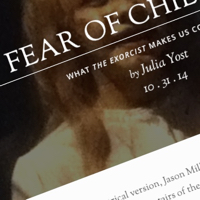Rascals case in brief
In the beginning, in 1989, more than 90 children at the Little Rascals Day Care Center in Edenton, North Carolina, accused a total of 20 adults with 429 instances of sexual abuse over a three-year period. It may have all begun with one parent’s complaint about punishment given her child.
Among the alleged perpetrators: the sheriff and mayor. But prosecutors would charge only Robin Byrum, Darlene Harris, Elizabeth “Betsy” Kelly, Robert “Bob” Kelly, Willard Scott Privott, Shelley Stone and Dawn Wilson – the Edenton 7.
Along with sodomy and beatings, allegations included a baby killed with a handgun, a child being hung upside down from a tree and being set on fire and countless other fantastic incidents involving spaceships, hot air balloons, pirate ships and trained sharks.
By the time prosecutors dropped the last charges in 1997, Little Rascals had become North Carolina’s longest and most costly criminal trial. Prosecutors kept defendants jailed in hopes at least one would turn against their supposed co-conspirators. Remarkably, none did. Another shameful record: Five defendants had to wait longer to face their accusers in court than anyone else in North Carolina history.
Between 1991 and 1997, Ofra Bikel produced three extraordinary episodes on the Little Rascals case for the PBS series “Frontline.” Although “Innocence Lost” did not deter prosecutors, it exposed their tactics and fostered nationwide skepticism and dismay.
With each passing year, the absurdity of the Little Rascals charges has become more obvious. But no admission of error has ever come from prosecutors, police, interviewers or parents. This site is devoted to the issues raised by this case.
On Facebook
Click for earlier Facebook posts archived on this site
Click to go to
Today’s random selection from the Little Rascals Day Care archives….
Click for earlier Facebook posts archived on this site
Click to go to
Today’s random selection from the Little Rascals Day Care archives….
‘Satanic ritual abuse’: A product of its era’s mythology

firstthings.com
Feb. 3, 2017
“Recall that after the 1970s there ensued a decade of moral panic over child sex abuse – including so-called satanic ritual abuse. Off-camera in The Exorcist [1973], the possessed Regan performed a Black Mass. In a film shot in the 1980s, her role in such satanic proceedings would have been quite opposite. In the mythology of that decade, the child is never a demon; the child is a victim of demons (i.e., pedophiles, satan-worshiping or not).
“Importantly, the tales of satanic ritual abuse that roiled the 1980s were nonsense, since discredited – as fantastical as any account of demonic possession. Yet they were believed, often beyond a reasonable doubt….”
– From “Fear of Children: What ‘The Exorcist’ Makes Us Confront” by Julia Yost at First Matters (Oct. 31, 2014)
![]()
For maximum notoriety, avoid Chowan County
July 10, 2013
Although some consider Little Rascals the East Coast version of the McMartin case, according to Google’s nGram Viewer it comes in a distant second in prominence.
Not even eight hours of “Innocence Lost” could make up for McMartin’s having been tried first and for its having been situated in Southern California rather than in Eastern North Carolina.
‘Lack of rigor’ is nothing new in the social sciences
 Nov. 4, 2013
Nov. 4, 2013
“It’s not a great time for psychology. Diederik A. Stapel, a Dutch social psychologist, has recently confessed to serial fraud. That he gamed the peer review process of his field’s best journals so often and for so long calls into question the quality-control mechanisms of academic psychology. If garbage can pass peer review, as long as it is well-written and well-formatted garbage, then the authority conferred by appearing in peer-reviewed publications would seem to be slight….
“Most work in the psychological and social sciences suffers from a lack of conceptual rigor. It’s a bit sloppy around the edges, and in the middle, too…. It’s as if the precision of the statistical analysis is supposed somehow to compensate for, or help us forget, the imprecision of thought at the foundation of the enterprise.”
– From “Barbara Fredrickson’s Bestselling ‘Positivity’ Is Trashed by a New Study” by Will Wilkinson at the Daily Beast (Aug. 16, 2013)
The contemporary cases Wilkinson cites and the episodes of the day-care ritual-abuse era bear many dissimilarities. But they share all too closely the practitioners’ use of “the precision of the statistical analysis… to compensate for, or help us forget, the imprecision of thought at the foundation of the enterprise.”
‘What have you got? Exoneration? I don’t think so….’
 Sept. 4, 2014
Sept. 4, 2014
“The evidence you heard today in my opinion negates the evidence presented at trial…. Based upon this new evidence, the state does not have a case to prosecute….”
– Johnson Britt, Robeson County (N.C.) district attorney, acceding to release of two defendants cleared by DNA testing after serving almost 31 years each for the rape and murder of a 11-year-old girl
“You find a cigarette, you say it has (a different suspect’s) DNA on it, but so what? It’s just a cigarette, and absent some direct connection to the actual killing, what have you got? Do you have exoneration? I don’t think so….
“It’s a tragic day for justice in Robeson County…. Apparently the district attorney just threw up his hands and capitulated.” More here.
– Now-retired DA Joe Freeman Britt (no relation to Johnson Britt), acknowledging not an iota of doubt – “None. None.” – that the two men he prosecuted in 1984 were guilty as charged
Hats off to Johnson Britt for breaking the prosecutorial code of arrogance (although that’s always easier when the mistake happened on a predecessor’s watch).
And what is there to say about Joe Freeman Britt, the coldblooded “deadliest prosecutor in America”?
What I wish I could say is that his willfully blind resistance to exoneration is rare. But of course it isn’t.











0 CommentsComment on Facebook